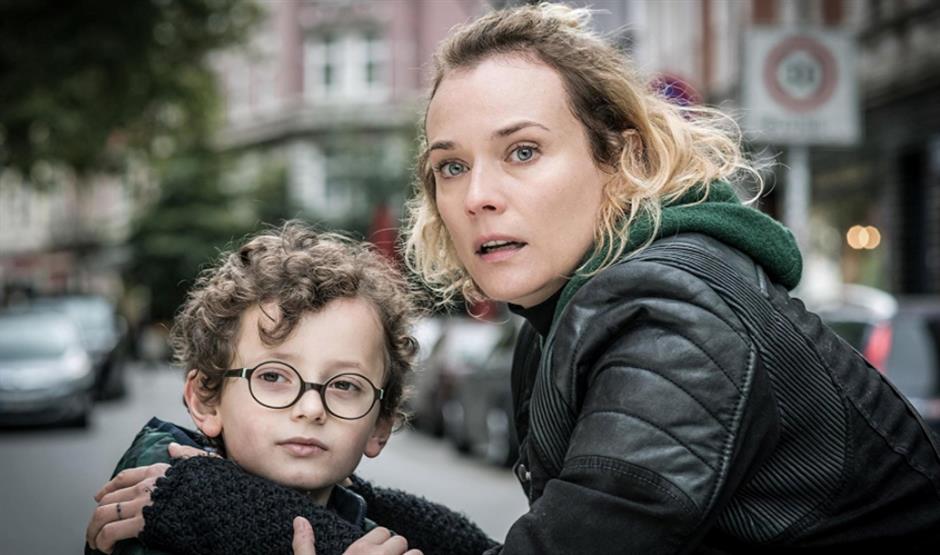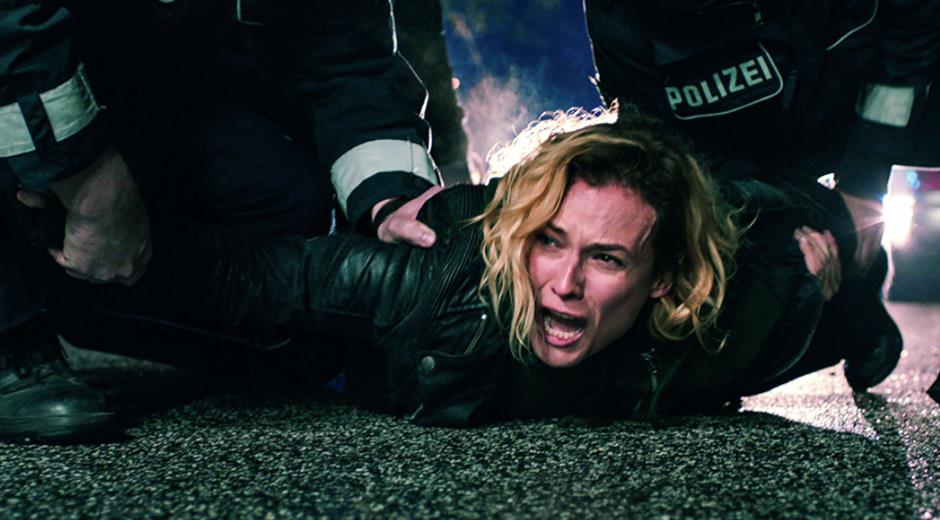Kruger, raw and real in Akin thriller

Rafael Santana (left) and Diane Kruger in “In The Fade”
It’s startling how few filmmakers have tried to tackle terrorism with anything beyond a standard procedural account. It’s less surprising that one of the few to really grapple with a response is Fatih Akin, a German-born filmmaker of Turkish descent, whose thorny, probing dramas traverse borders as a matter of course.
His latest, “In the Fade,” is Germany’s Oscar submission and shortlisted for best foreign language film. Its star, Diane Kruger, won best actress award at last year’s Cannes Film Festival. And like the best of Akin’s films it’s a muscularly lean and emotionally raw film.
Kruger, a native German acting in her first German film, plays Katja Sekerci. She lives in Hamburg with her husband Nuri (Numan Acar), who’s Turkish, and their five-year-old son Rocco (Rafael Santana).
In the movie’s opening, Nuri, clad in a white suit, is walked from his prison cell directly into his wedding with Katja. The film flashes forward to their happy family life five years later. When Katja returns to Nuri’s office one evening, she encounters a road blocked by police. Her initial horror is confirmed: Nuri and Rocco have been killed by a nail bomb just outside his office. Katja descends into a nightmare of grief and disorientation. She leads investigators through the rain to her home to give them toothbrushes to identify their DNA.

Diane Kruger in a scene from “In The Fade”
The police, while sympathetic, are suspicious of Nuri’s background. Was he religious, politically active or dealing drugs again? But Katja remembers a fleeting encounter when she left her husband’s office. A woman left an unchained bicycle outside the office. She was, as Katja says, white and blonde, “as German as me.” The bombing was the work of Neo-Nazis, a pair who were targeting a Turkish area of town.
Akin was inspired to make “In the Fade” after a rash of Neo-Nazi terrorist attacks in Germany. But the film resonates on many other shores, too, including in the United States, where the ethnicity of a perpetrator determines which mass killings get labeled terrorism. In “In the Fade,” the face of terrorism is blonde and blue-eyed.
Told in three chapters, the film is wrenching, gripping and a little perplexing. The middle chapter, the courtroom drama, is expertly done. But the second act’s clear lines of good and evil are blurred in the final chapter, where Akin’s film fights a growing sense of despair with the glimmer of a greater empathy.
To say that the many parts of “In the Fade” are held together by Kruger would be an understatement.
As a cocktail of grief, fury and regret, she’s a remarkably original protagonist — a chain-smoking, tattooed mother who, in her trauma, is always a breath away from drowning.















